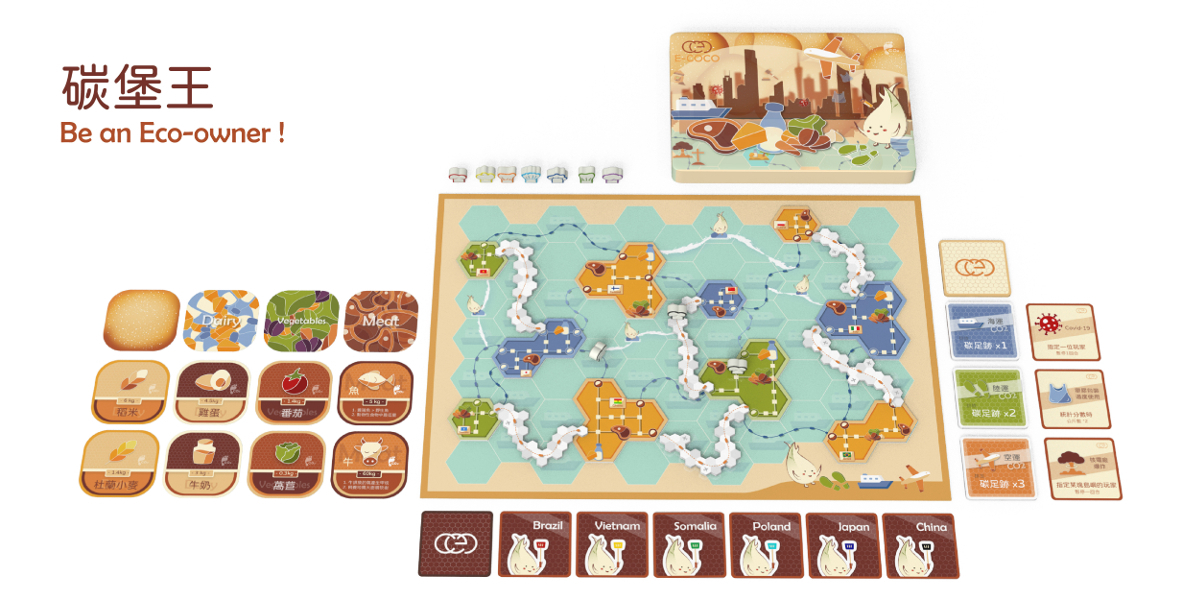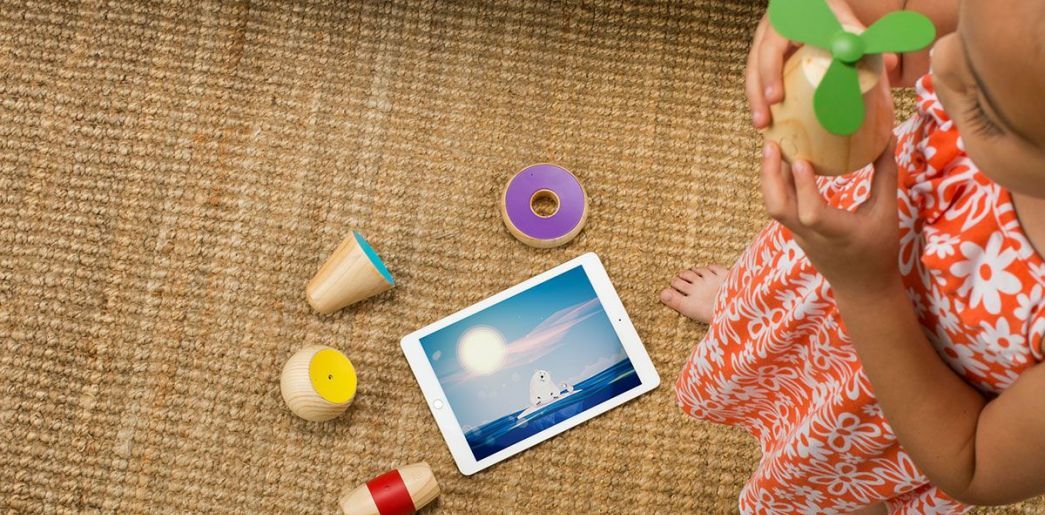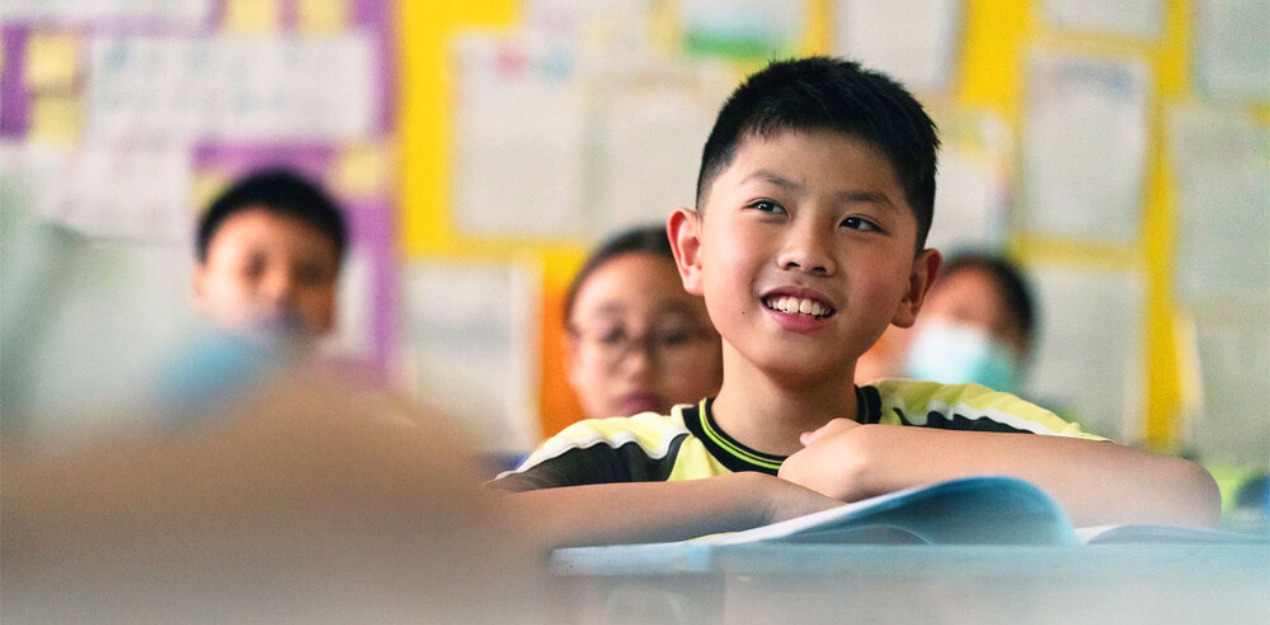AÑO
2023
CATEGORÍA
Aprendizaje y Juego
OBJETIVOS
Educación de calidad, Ciudades y comunidades sostenibles, Producción y consumo responsables
PAL. CLAVE
broad game, cardon footprint, hamburger, calculate, education
PAÍS
Taiwan
CRÉDITOS
Sun Yu-Chieh, Chang Yen, Chien Yu-Chieh, Chou Yueh-Ju, Prof. Li Kai-Chu
LINK
https://williamappleshow.wixsite.com/becapple/project-01
E-COCO: Be an Eco-Owner
E-COCO teaches kids on sustainability and reducing carbon footprint by a game making a hamburger.
How does it work?
E-COCO teaches children to calculate their carbon footprint and correct carbon compensation concepts through board games. As the store manager in the game, children have to try to make the lowest carbon burger, obtain fruits, vegetables, meat, etc., through different transportation methods, and pay the corresponding carbon footprint coins. Randomly obtained ingredients have different carbon footprints for children to combine burgers.
The function cards in the game, including tree planting, carbon trading, plastic packaging, etc., can resist others or exchange carbon coins. E-COCO cultivates children's concept of sustainable and low-carbon development through immersive games.
Why is it needed?
Problems:
1.Early education can improve kids’ initiative to implement low-carbon education.
2.Abuse of carbon offsetting - COP26: Experts vs Greenwashing by oil companies.
3.Planting too many carbon-absorbing plants destroys natural diversity.
4.Transportation methods affect carbon footprint.
5.Low-carbon vegetables can slow climate change.
Market:
1.Target object: Kids more than 8 years old.
Since they can have the correct concept of environmental protection and develop it into a habit when they grow up.
2.Market value:
Increase the value of board game learning: University professors shared that board games increase interpersonal interaction and are also an indispensable and important ability for children in the process of growing up.
The increasing importance of environmental education: Environmental education is now an integral part of the national education curriculum, aiming to cultivate environmentally conscious citizens with a sustainable development mindset for a better future.
How does it improve life?
Storybroad:
1. Class board game experience.
Through classroom interaction, the teacher will provide more examples to enhance learning opportunities.
2. Choose the route.
The carbon footprint of different modes of transport is different: short-haul flights > long-haul flights > sea transport > land transport. Through numerical calculations, children can understand the big difference in carbon emissions between imported and local products.
3. Win with a low carbon footprint.
At the end of the game, the carbon footprint of the ingredients is combined to calculate the final carbon footprint, not only as an exercise in numeracy but also to show children how much carbon a burger can produce.
Sdgs:
Meets item 4.7 to raise children's awareness of sustainable development.
Product value:
1. Correct concept of carbon compensation.
2. Play as a boss.
3. Learn to calculate carbon footprint.





